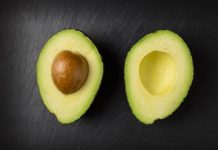
True and False. Check the Nutrition Facts label on the antacid. Some antacids (chewable tablets) do contain calcium carbonate which is 40% calcium, but the amounts vary between brand names. Of those containing calcium (depending on the brand of antacid), they contain between 200 milligrams to 320 milligrams of calcium per tablet. You will need four to six antacid tablets containing calcium carbonate per day to fulfill your calcium requirement depending on your age (1,000 milligrams for persons 19 to 50 years of age and 1,200 milligrams for persons 51+ years). A roll of antacids is more expensive than the same amount of calcium carbonate supplements so compare the cost.
The absorption of some other vitamins and minerals is decreased in the presence of antacids. The absorption of riboflavin, vitamin C and iron is decreased by antacids.
Dr. Heaney at Creighton University has done considerable work on calcium absorption and antacids. Dr. Heaney concludes that the differences among most calcium supplements are irrelevant if antacids are taken with a meal. Many antacids are absorbed as well as food sources (like milk) if taken with a meal.
Calcium supplements should be taken three times per day, much in the same way we advise milk drinking. Therefore, if you took two antacids per meal, it might not affect absorption, but you wouldn’t get vitamin D from the antacids. Vitamin D is necessary for absorption of calcium and the storage of calcium in bone. Antacids do not contain vitamin D.
If you have heart, kidney or liver disease, high blood pressure, are on a low salt nutrition therapy or suffer from water retention, consult your physician BEFORE taking any antacids. Antacids containing magnesium (liquid antacids) may cause diarrhea and aluminum-containing antacids (liquid antacids) may cause constipation.


